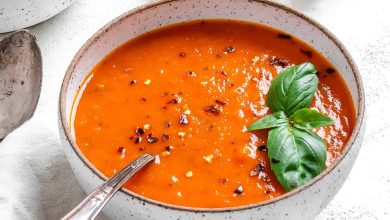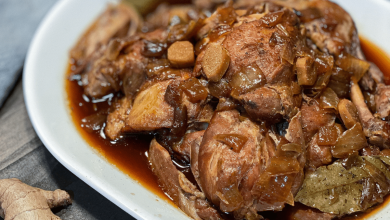Almost Like Cpk Greek Pizza
🍕 Sure thing! Let’s dive into the world of Greek pizza, also known as “CPK Greek Pizza” or California Pizza Kitchen Greek Pizza, which is a delicious and unique twist on traditional pizza. 🇬🇷🍕
What is Greek Pizza?
Greek pizza is a style of pizza known for its Mediterranean-inspired flavors. It’s typically characterized by a thicker, chewy crust, a generous amount of olive oil, and a combination of Greek ingredients like feta cheese, Kalamata olives, tomatoes, and fresh herbs. It offers a delightful fusion of Greek and Italian culinary traditions.
History:
The exact origin of Greek pizza is a bit unclear, but it likely emerged in the United States, where various regional pizza styles developed over the years. California Pizza Kitchen (CPK) played a significant role in popularizing this style with its innovative menu offerings.
Components:
To make a CPK Greek Pizza, you’ll need the following key components:
-
Pizza Dough: You can use store-bought pizza dough or make your own.
-
Olive Oil: Generously brushed on the dough for a golden crust.
-
Tomatoes: Sliced or diced, fresh tomatoes are often used.
-
Feta Cheese: Crumbled feta cheese adds a tangy and creamy element.
-
Kalamata Olives: These dark, briny olives provide a burst of flavor.
-
Red Onion: Thinly sliced red onion adds a sharp and colorful touch.
-
Fresh Herbs: Common choices include oregano, basil, and parsley for that Mediterranean freshness.
Steps to Prepare Greek Pizza:
Here’s a step-by-step guide to making a mouthwatering Greek pizza:
-
Preheat Your Oven: Preheat your oven to 475°F (245°C). Use a pizza stone or an inverted baking sheet for an even crust.
-
Roll Out the Dough: Roll out your pizza dough on a floured surface to your desired thickness.
-
Transfer to Baking Surface: Carefully transfer the dough to your preheated pizza stone or baking sheet.
-
Brush with Olive Oil: Brush the dough generously with olive oil to create a golden, crispy crust.
-
Add Toppings: Layer your ingredients on top of the oiled dough. Start with the tomatoes, then sprinkle feta cheese, Kalamata olives, red onion, and fresh herbs.
-
Bake: Place the pizza in the preheated oven and bake for about 10-12 minutes, or until the crust is golden and the toppings are bubbly and slightly browned.
-
Serve: Remove the pizza from the oven, let it cool for a minute or two, and then slice it up. Serve hot and enjoy!
Time Needed:
The preparation and cooking time for Greek pizza can vary depending on factors like dough thickness and your oven’s temperature. Generally, it takes about 20-25 minutes in total, including dough preparation and baking.
Now you have all the information you need to create a delicious CPK-style Greek pizza at home! 🍕🇬🇷 Enjoy your culinary adventure!
Certainly! Here are the nutrition facts and some health information for a typical serving of Greek pizza:
Nutrition Facts (Per Serving – 1 Slice, assuming 8 slices per pizza):
- Calories: Approximately 250-300 calories per slice, but this can vary based on the size and thickness of the pizza.
- Total Fat: About 10-15 grams, with saturated fat accounting for around 4-6 grams.
- Cholesterol: Typically, around 20-30 milligrams.
- Sodium: Varies, but it can range from 400-600 milligrams.
- Carbohydrates: Roughly 30-35 grams, including dietary fiber.
- Protein: Approximately 8-10 grams.
- Vitamins and Minerals: Greek pizza can be a good source of calcium, thanks to the feta cheese. It also provides various vitamins and minerals from the vegetables and herbs.
Health Information:
-
Caloric Content: Greek pizza can be moderately high in calories, so it’s essential to monitor your portion size to avoid excessive calorie intake.
-
Fats: The fat content primarily comes from the olive oil and feta cheese. While these fats are generally considered healthy (unsaturated fats), it’s still important to consume them in moderation.
-
Sodium: Greek pizza can be relatively high in sodium due to ingredients like olives and feta cheese. High sodium intake can contribute to high blood pressure, so it’s wise to be mindful of your overall sodium consumption.
-
Protein: Greek pizza provides a moderate amount of protein, which is essential for muscle health and overall body function.
-
Vitamins and Minerals: It offers vitamins and minerals from the vegetables and herbs, contributing to your daily nutrient intake.
-
Customization: You can make Greek pizza healthier by choosing whole wheat pizza dough for added fiber or using less cheese and olive oil to reduce calorie and fat content. Additionally, you can load up on more vegetables to boost the nutrient content.
Remember that the specific nutrition values can vary based on the exact ingredients and portion sizes you use when making Greek pizza. As with any dish, enjoying it in moderation as part of a balanced diet can help you savor the flavors while maintaining a healthy lifestyle.








